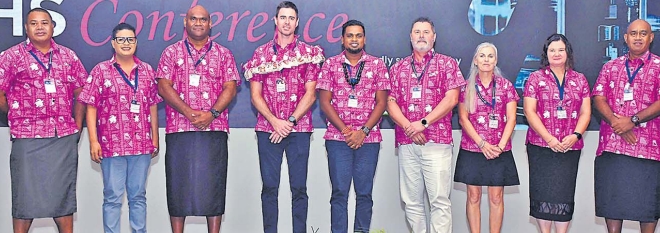UNSAFE mental health in the workplace can be harmful to an average employee in the sense that they are in a constant state of alert, scanning the work environment for threats, says Certified Emotional Intelligence Life Coach Mohammed Altaab Khan.
Mr Khan made the comment while speaking at the Fiji National University’s National Training and Productivity Centre 2025 Fiji Occupational Health and Safety (OHS) conference in Nadi late last month.
“We all have a lot of strategies, even OHS champions in the organisations, they have their own game plans about how they are going to navigate through OHS in the workplace,” Mr Khan said.
“But remember one thing, your strategies without psychological safety are like an engine without fuel. Your boat, your car, your vehicle, or anything else which has an engine goes nowhere.”
Mr Khan said over time, this erodes confidence and stifles creativity while increasing anxiety and can lead to burnout or depression.
“We sometimes think, why do people get so sick in the workplace? We go back and say, ‘oh, this man drinks a lot of yaqona, but we never think about what’s happening in the workplaces.
“What is the culture of the workplace and the impact that it has on a person, not only as an individual, but their families and the community that they come from, and that’s why we have a rise in psychological based problems that people face today.”
He said any incident or hazard that results in physical harm to a person often carries a significant psychological or emotional impact as well.
“Physical injuries are not isolated and they frequently lead to mental health challenges such as trauma, stress, anxiety or reduced confidence which often affects the overall wellbeing of the workplace.
“Psychological safety isn’t just about feeling safe. It is about being human in a system that’s increasingly automated.
“It’s the mission of the cultural health of the organisation, usually we have a lot of people who invest in a lot of good initiatives like to drive physical health as part of the wellness program in the organisation but how many of us consider the emotional and the mental health of people in the workforce.”
He said this was a strong message that participants needed to take back to their organisations.



